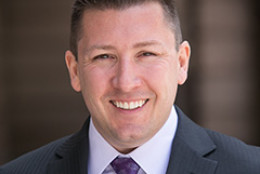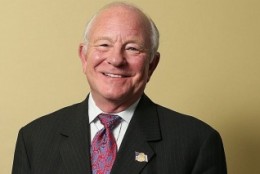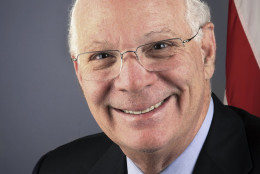OPM Cyber Breach
-
UPDATED: Agencies with the largest percentage of security clearances, such as DoD, DHS and VA, will end up shouldering a huge part of the burden to pay for the credit monitoring services for 21 million current and former federal employees impacted by the second data breach. AFGE and federal officials are angered after acting OPM Director Beth Cobert tells agencies about OPM’s plans to raise its fees for security clearance services it provides in order to recoup the costs of the identity protection services it must purchase for the victims of the attack.
July 21, 2015 -
Following discovery of its data breach, the Office of Personnel Management was criticized for awarding a identity protection contract within 36 hours. But in fact, fast-track procurement makes sense in contingency situations. In reality, the government contracting community is too reluctant to use many of the authorities and flexibilities it has. Stan Soloway is the president and CEO of the Professional Services Council; Jonathan Aberman is the managing director of Amplifier Ventures and chairman of Tandem NSI. They joined Tom Temin on the Federal Drive to explore the topic of contingency contracting, and explain why OPM awarded that original contract so quickly.
July 21, 2015 -
OPM's recent cybersecurity breach shows how tight budgets, limited expertise and cultural blind spots create perfect storms of agency vulnerability throughout the federal environment.
July 20, 2015 -
It's been one week now since Katherine Archuleta told reporters she didn't plan to resign -- and then announced her resignation less than 24 hours later. Acting OPM Director Beth Cobert has spent her first week on the job reassuring leaders within her agency and others that she understands the magnitude of the job at hand. Tom Shoop is editor in chief at Government Executive magazine, and he writes Archuleta's resignation is another case of business as usual in Washington. But he tells In Depth guest host Jared Serbu that it doesn't have to be that way.
July 17, 2015 -
Winvale and its subcontractor CSID want to bid on the larger contract to help the 21.5 million people affected by the breach of OPM's security-clearance database, Winvale CEO Kevin Lancaster said. "We'd absolutely go again for it. We have capacity," he said. "We've got the right solutions, the right lessons learned from this one." Not everyone is convinced.
July 17, 2015 -
Millions of federal employees are finding out their personal data was stolen from the Office of Personnel Management. OPM hired two companies to provide credit and identity theft protection. But Winvale and CSID caused controversy with slow phone response and e-mails that looked like phishing. Winvale CEO Kevin Lancaster and CSID founder Joe Ross joined Tom Temin on the Federal Drive with their side of the story, and tips for what to do when your information is taken.
July 17, 2015 -
With Katherine Archuleta enforced departure a fact, and long-term credit monitoring likely, much of the heat will be off the OPM hack. Too bad, but that's how things work here, says Senior Correspondent Mike Causey.
July 17, 2015 -
We want to know your thoughts on the OPM data breach, OPM's response to it and what you plan to do next. Take our brief survey today.
July 16, 2015 -
The Electronic Questionnaires for Investigations Processing system is offline now while the Office of Personnel Management tries to fix its cybersecurity vulnerabilities. Those vulnerabilities were discovered during the investigation into the recent data breach, in whch hackers stole personal information for 21.5 million people. And while much of the attention has focused on the OPM crisis' impact on federal workers, contractors are impacted too in a big way, and they're certain to be impacted by the backlog now building up while eQIP is offline Stan Soloway is the president and CEO of the Professional Services Council. He tells In Depth guest host Jared Serbu about the effects contractors are feeling -- and what they expect.
July 16, 2015 -
The number of agency employees using two-factor authentication is 20 percent since the start of the 30-day cybersecurity sprint. Federal Chief Information Officer Tony Scott had some positive results to share at the halfway point. Patrick Flynn is the director of homeland and national security programs at Intel Security, and former assistant chief of the Office of Border Patrol at Customs and Border Protection. He tells In Depth with Francis Rose what we should be looking for as more agencies report their progress at the end of the cyber sprint.
July 15, 2015 -
The OPM cyber attack may turn out to have a silver lining. The attack may give agencies an opportunity — if they choose to take it — to redefine encryption. Chuck Archer is the executive chairman at Covata and former assistant director of the Federal Bureau of Investigation. He tells In Depth with Francis Rose that encryption isn't a people problem.
July 15, 2015 -
Alan Paller and John Pescatore of the SANS Institute explain why Katherine Archuleta's departure may not be a fair nor effective means for addressing the cybersecurity problems at OPM.
July 15, 2015 -
Even though the Office of Personnel Management is responsible for the biggest breach to federal employee data in history, it is by no means the only agency having a tough time addressing cybersecurity vulnerabilities. The number of cybersecurity incidents government-wide is up from about 5,500 in fiscal 2006 to more than 67,000 in fiscal 2014 — and those are just the incidents agencies have reported. Information security has been on the Government Accountability Office's High Risk list since 1997. Greg Wilshusen is director of information strategic issues at the GAO. He tells In Depth guest host Jared Serbu why agencies are having a hard time coming up with risk-based cyber programs.
July 14, 2015 -
The Office of Personnel Management has already announced plans to provide up to three years of identity theft protection for the more than 21 million people involved in its massive data breach. But several U.S. senators are saying that's not good enough. The Senate delegations from Maryland and Virginia are jointly sponsoring legislation that pay for protection services for breach victims for the rest of their lives — and grant them $5 million insurance policies against identity theft. Sen. Ben Cardin (D-Md.) is one of the sponsors. He tells In Depth guest host Jared Serbu that the services OPM's offering aren't enough.
July 14, 2015 -
The Office of Personnel Management and its new acting director are in crisis mode right now as the agency responds to the largest breach of federal employee data in history. But among the many challenges Beth Cobert faces as she takes the helm at OPM is making sure the agency pays attention to its basic human capital management missions -- and doesn't get distracted by the emergency at hand. Don Kettl is a management expert at the Unversity of Maryland School of Public Policy. He tells In Depth guest host Jared Serbu that the data breach probably wasn't the fault of former OPM director Katherine Archuleta -- but her departure from the agency wasn't a surprise.
July 14, 2015











